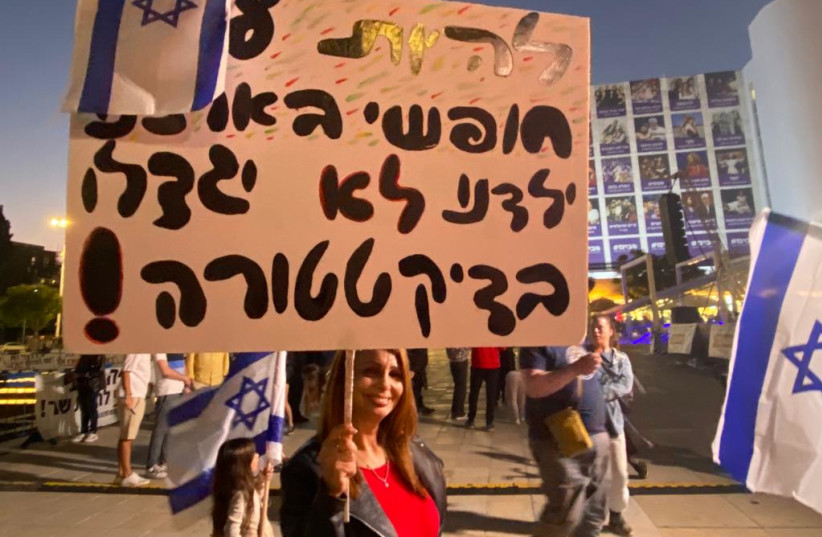People flooded Habima Square in Tel Aviv on Saturday to protest the judicial reforms that Prime Minister Benjamin Netanyahu's government is trying to push through.
"This is a tour de force, we hope to show the government that the people are not with them. We want the protests to grow and grow, and for more and more people to join," a spokesperson for the Movement for Quality Government in Israel said.
"There's one man who is going to trial, and he is afraid of prison and he doesn't want to go there. It's pretty obvious. That's the main goal [of the government's efforts to pass the reform]. Without that there isn't reform because he [was] against the reform... he talked about it only three years ago. He's against reform, but he's gone on trial. And for that, he will do everything," the spokesperson explains.
While the energetic, rhythmic pounding of drums boomed out and chants of "democracy" and "shame" filled the air, behind the fervor of the demonstration, people expressed some profound fears.
"[If the reforms go through,] Israel is lost. I think it will be beyond saving if it keeps going in this direction," Dor, a protestor in his early 20's says.

Another protestor, Shelina, a woman in her thirties, says "we're afraid for our democracy."
"We're afraid for our democracy."
Shelina
The protestors were packed tight throughout most of the square. Every few feet there was someone waving an Israeli flag or brandishing a protest sign. For many, the act of protesting the judicial reforms was inextricably linked with other issues they, as Israelis, are facing.
What are the issues in question?
One prevalent issue is that of the Israeli High Court of Justice blocking Aryeh Deri from serving in a ministerial capacity.
Many carried signs such as one reading, "Deri, it's not us, it's you!"
Deri was blocked from serving as interior and health minister due to a plea bargain following his convictions for tax evasion, fraud, and breach of trust.
In fact, many critics of the proposed judicial reforms see them as a way for crooked politicians to have the power to do whatever they want without consequences.
"The government is actually trying to cancel the judicial system," Zev, a protestor in his late sixties or early seventies expressed. "They're trying to erase it, using the system against itself."
